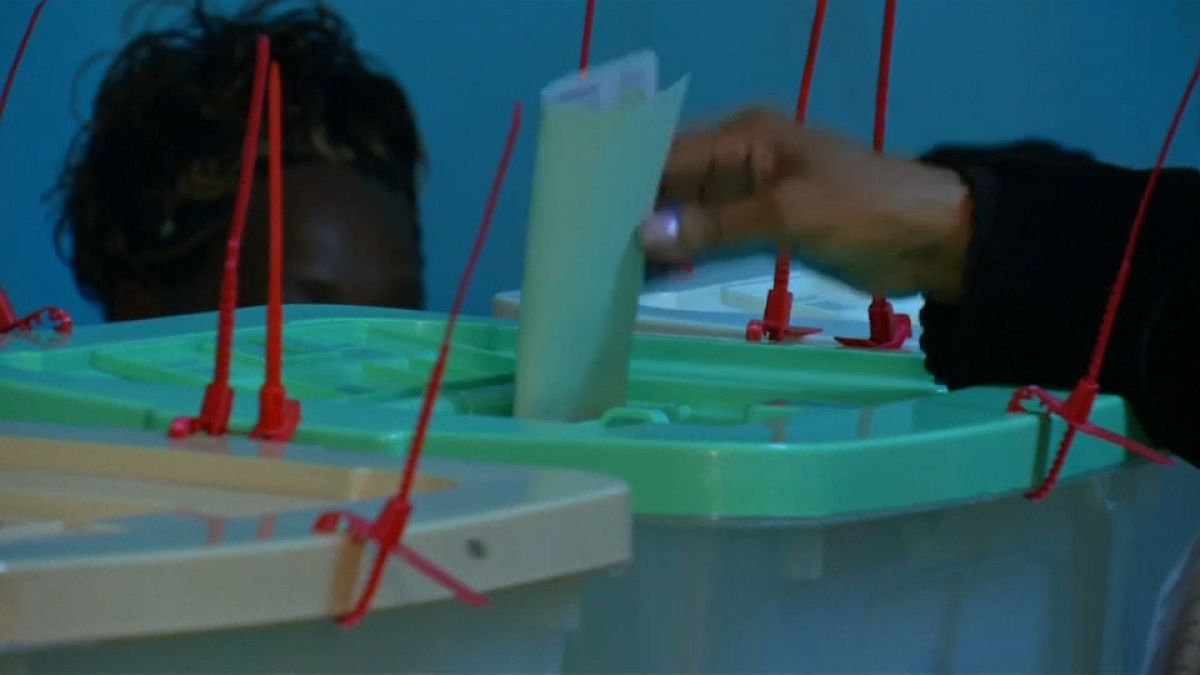Opinion polls have put incumbent Uhuru Kenyatta neck and neck with his arch-rival Raila Odinga
Voters in Kenya are picking their next president on Tuesday, amid fears that the latest electoral clash between the country’s main political dynasties could once again descend into violence.
Kenyans queued in large numbers through fields and along pavements, with reports that some had waited all night to cast their ballots. Voting has mostly gone smoothly despite some isolated incidents.
Pre-election opinion polls put incumbent Uhuru Kenyatta, son of Kenya’s founding president, neck and neck with his arch rival Raila Odinga.
President Kenyatta, 55, called for calm on the eve of polling and, as he cast his ballot on Tuesday, north of Nairobi, he insisted that he would be willing to step down if he lost. He called on Odinga to do the same.
“In the event that they lose, let us accept the will of the people. I am willing myself to accept the will of the people, so let them too,” Kenyettta said.
Opposition concerns about vote rigging have already emerged.
Kenyatta’s long-time foe Odinga, 72, son of Kenya’s first vice-president, complained about the result in 2007 and 2013. A decade ago, outbreaks of ethnic violence followed in which some 1,200 people were killed and 600,000 displaced.
What is at stake in Kenya’s election? https://t.co/MYoevCOt4p
— The Economist (@TheEconomist) 8 août 2017
Odinga voted in the Nairobi slum of Kibera but left without speaking to supporters.
In 2013, electronic voting equipment suffered widespread failures, although Odinga’s decision to limit his complaints to the courts prevented any unrest.
This year, the torture and murder of a top election official and the deportation of two foreign Odinga advisers has heightened tension for voting which will also see lawmakers and local representatives chosen by Kenyan citizens amid tight security.
The government has deployed more than 150,000 security personnel, including wildlife rangers, to protect 41,000 polling stations.
The winner needs one vote more than 50 percent.
Uhuru vs. Odinga: The social media battlefield as Kenya picks president https://t.co/hGYVnIoPiz
— africanews (@africanews) 8 août 2017
First results are not expected before Wednesday, but a very close race might mean as long as three days before a winner emerges.
In New York, UN Secretary General Antonio Guterres called for a commitment from all parties to “credible and peaceful elections”, his spokesman said.
There are more than 6,000 domestic observers, and party agents at each tallying station will have to sign off on results that are then sent electronically to county offices and a national collation centre in the capital, Nairobi.
Former US Secretary of State John Kerry is co-leading an international observer delegation from the ‘Carter Center’ human rights organisation.
"All Africa is watching." Proud that @aminatatouremi1 and @JohnKerry lead our observer delegation. #ElectionsKEhttps://t.co/ysG0QTDVJZpic.twitter.com/09lv8YWPFt
— The Carter Center (@CarterCenter) 7 août 2017
with Reuters
